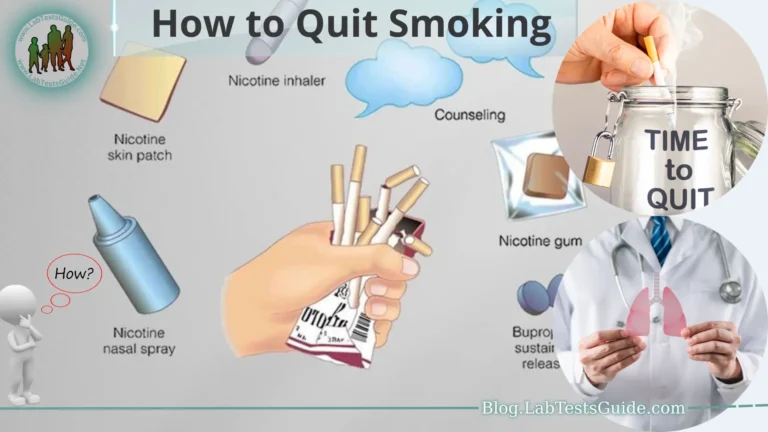Nutrition and Healthy Eating Habits: The teenage years are a time of growth and development, and good nutrition is essential for general health and well-being during this important period. Unfortunately, many teens have unhealthy eating habits that can lead to a variety of health problems, both now and in the future. In this article, we’ll explore the importance of nutrition for teens, common unhealthy eating habits among teens, and the benefits of healthy eating habits. By understanding the role of nutrition in their lives, teens can make informed decisions that will help them lead healthier, more fulfilling lives.

Importance of nutrition for teens:
Nutrition is important for everyone, but it’s especially critical for teens. During adolescence, the body undergoes significant physical and emotional changes, and proper nutrition is essential to support growth and development. Proper nutrition helps:
- Support physical growth: During adolescence, the body undergoes rapid growth and development, including increases in height, weight, and muscle mass. Proper nutrition, including sufficient intake of protein, calcium, and vitamins, is necessary to support this growth.
- Provide energy: Teenagers are often very active and participate in sports and other physical activities. A balanced diet that includes carbohydrates, healthy fats, and protein provides the energy needed to fuel these activities and support overall physical activity.
- Maintain a healthy weight: Poor nutrition can lead to weight gain, which can increase your risk for a variety of health problems, including heart disease, diabetes, and certain cancers. A balanced diet that is low in saturated and trans fats, added sugars, and processed foods can help teens maintain a healthy weight.
- Support brain development: The brain undergoes significant development during adolescence, and proper nutrition is essential to support this process. Certain nutrients, such as omega-3 fatty acids and B vitamins, are important for brain health and cognitive function.
- Support emotional well-being: Proper nutrition can help support emotional well-being, which is especially important during the stressful teenage years. A balanced diet that includes fruits, vegetables, whole grains, and lean protein can help reduce the risk of depression and anxiety.
In summary, good nutrition is essential for general health and well-being during adolescence. By making healthy choices and ensuring adequate nutrient intake, teens can maintain their physical, emotional, and mental health.
Common unhealthy eating habits among teens:
Some common unhealthy eating habits among teens.
- Skipping Meals: Many teens skip meals, such as breakfast or lunch, which can lead to overeating later in the day. This can also cause fluctuations in blood sugar levels, which can lead to fatigue, dizziness, and other symptoms.
- Consuming too many calories: Many teens consume more calories than they need, often in the form of fast food, processed snacks, and sugary drinks. This can lead to weight gain and increased risk of health problems, such as heart disease and diabetes.
- Not getting enough fruits and vegetables: Teens often don’t get enough fruits and vegetables in their diet, which can lead to nutrient deficiencies and increased risk of chronic disease.
- Drinking too many sodas and sugary drinks: Sodas and other sugary drinks are high in calories and sugar, and can lead to weight gain and other health problems.
- Eating too much fast food and processed snacks: Fast food and processed snacks are often high in saturated and trans fats, sodium, and added sugars. Excessive consumption of these foods can lead to increased risk of heart disease, diabetes, and other health problems.
- Skipping breakfast: Many teens skip breakfast, which can lead to overeating later in the day and fluctuations in blood sugar levels, which can lead to fatigue, dizziness, and other symptoms.
These unhealthy eating habits can have long-term consequences on a teen’s health and well-being. By making small changes to their eating habits, teens can improve their overall health and reduce their risk of chronic disease.
Benefits of healthy eating habits:
Some of the benefits of healthy eating habits.
- Improved Physical Health: A balanced diet that is rich in fruits, vegetables, whole grains, lean protein, and healthy fats can improve overall physical health. This can help reduce the risk of chronic diseases, such as heart disease, diabetes, and certain types of cancer.
- Increased energy: A healthy diet can help provide the energy needed to fuel physical activities and other daily tasks.
- Improved Mental Health: Proper nutrition can also support mental health and reduce the risk of depression and anxiety.
- Better academic performance: Eating a healthy diet can improve cognitive function and concentration, which can lead to better academic performance.
- Improved Sleep : Proper nutrition can help improve the quality of sleep, which is essential for overall health and well-being.
- Better Digestion :A healthy diet that includes high-fiber foods can improve digestive health and reduce the risk of constipation and other digestive problems.
- Improved self-esteem: Eating a healthy diet and taking care of your physical health can improve self-esteem and self-confidence.
By making healthy eating choices, teens can experience a wide range of benefits that can improve their overall quality of life.
Nutrients for Teens:
Carbohydrates:
Sources
Carbohydrates can be found in a variety of foods.
- Whole Grains: Whole grain foods, such as oatmeal, brown rice, quinoa, and whole grain breads, pasta, and cereals, are rich in complex carbohydrates, fiber, and other important nutrients.
- Vegetables: Vegetables are a great source of complex carbohydrates and fiber. Leafy green vegetables, such as spinach and kale, as well as starchy vegetables, such as sweet potatoes, squash, and corn, are good sources of carbohydrates.
- Fruits: Fruits are a source of simple carbohydrates, but they also contain fiber, vitamins, and other important nutrients. Berries, apples, oranges, and bananas are good sources of carbohydrates.
- Legumes: Legumes, such as beans, lentils, and peas, are a good source of complex carbohydrates, fiber, and protein.
- Dairy Products: Dairy products, such as milk and yogurt, contain lactose, a type of simple carbohydrate.
It’s important to choose carbohydrates from whole food sources, such as fruits, vegetables, and whole grains, rather than processed and refined sources, such as snack foods and sugary drinks. Processed and refined sources of carbohydrates can cause spikes in blood sugar levels and contribute to weight gain and other health problems.
Recommended daily intake
The recommended daily intake of carbohydrates for adolescents varies based on their age, gender, activity level, and other individual factors. The Dietary Guidelines for Americans recommend that carbohydrates account for 45-65% of total daily calories. For adolescent girls and boys ages 14 to 18, the recommended daily carbohydrate intake is:
Girls: 130 grams per day
Children: 130-260 grams per day
It’s important to note that not all carbohydrates are created equal, and it’s important to choose complex carbohydrates, such as whole grains, fruits, and vegetables, over simple carbohydrates, such as snacks and sugary drinks. It’s also important to consider individual needs and preferences, and to speak with a health professional or registered dietitian for personalized nutritional recommendations.
Health benefits
- Improved energy levels: Carbohydrates are the body’s main source of energy, and getting enough carbohydrates can improve energy levels, allowing teens to perform better in physical activities and other daily tasks.
- Improved Cognitive Function : The brain relies on glucose, a type of carbohydrate, for energy. Eating a diet rich in carbohydrates can improve cognitive function and support brain health.
- Better digestive health: Carbohydrates that are high in fiber, such as those found in whole grains and vegetables, can improve digestive health and reduce the risk of constipation and other digestive problems.
- Lower risk of chronic diseases: Eating a diet rich in complex carbohydrates, such as whole grains and vegetables, has been linked to a lower risk of chronic diseases, such as heart disease, diabetes, and certain types of cancer.
- Better athletic performance: Eating enough carbohydrates can improve athletic performance by providing the energy needed for physical activity.
It’s important to choose carbohydrates from whole food sources, such as fruits, vegetables, and whole grains, rather than processed and refined sources, such as snack foods and sugary drinks. Processed and refined sources of carbohydrates can cause spikes in blood sugar levels and contribute to weight gain and other health problems.
Risks of overconsumption
- Weight gain and obesity: Consuming too many carbohydrates, particularly from sugary snacks and drinks, can lead to weight gain and obesity, which can increase the risk of other health problems.
- Dental problems: Eating a diet high in carbohydrates, particularly sugary foods and drinks, can increase the risk of dental problems, such as cavities and cavities.
- Unstable blood sugar levels: Consuming too many simple carbohydrates can cause spikes in blood sugar levels, followed by drops, which can make teens feel tired and sluggish.
- Increased risk of chronic diseases: Excessive consumption of carbohydrates, particularly simple carbohydrates, has been linked to an increased risk of chronic diseases, such as type 2 diabetes and heart disease.
It is important for teens to eat carbohydrates in moderation and choose complex carbohydrates, such as whole grains, fruits, and vegetables, over simple carbohydrates, such as snacks and sugary drinks. It’s also important to consider individual needs and preferences, and to speak with a health professional or registered dietitian for personalized nutritional recommendations.
Proteins:
Proteins are essential nutrients that play a variety of important roles in the body.
- Tissue building and repair: Proteins are the building blocks of many tissues in the body, including muscle, bone, skin, and organs.
- Immune Function Support: Proteins are involved in the production of antibodies and other components of the immune system, which help fight infection and disease.
- Transport and storage of nutrients: Some proteins, such as hemoglobin, are involved in the transport of nutrients, such as oxygen, throughout the body. Other proteins, such as ferritin, help store nutrients, such as iron.
- Enzyme production: Many proteins act as enzymes, which are involved in the production and regulation of chemical reactions in the body.
- Hormone production: Some proteins, such as insulin and growth hormone, are involved in the production of hormones, which help regulate various bodily functions.
Proteins are made up of amino acids, which are often called the building blocks of proteins. There are 20 different amino acids, and some of them can be made by the body, while others must be obtained through the diet.
Teenagers need to consume adequate amounts of protein to support growth and development during adolescence. The amount of protein a teen needs can vary based on their age, gender, activity level, and other individual factors. The recommended daily protein intake for adolescent girls and boys ages 14 to 18 is:
Girls: 46 grams per day
Children: 52-56 grams per day
However, it’s important to note that individual protein needs can vary, and some teens may need more or less protein depending on their individual circumstances. It is important to speak with a health professional or registered dietitian for personalized nutritional recommendations.
Fats:
Fats are an essential nutrient that plays many important roles in the body.
- Providing energy: Fats are a rich source of energy, providing the body with a concentrated source of calories.
- Supporting cell growth and development: Fats are a key component of cell membranes and play an important role in cell growth and development.
- Organ Protection: Fats are stored around the organs, providing cushioning and protection against physical impact.
- Insulation of the body: Fats help to insulate the body, keeping it warm in colder temperatures.
- Nutrient Absorption and Transport: Some vitamins and nutrients, such as vitamins A, D, E, and K, are fat-soluble, meaning they must be consumed with fat in order to be properly absorbed and transported throughout the body.
However, not all fats are the same. Some fats, such as the unsaturated fats found in foods like nuts, seeds, and fish, are considered “healthy” fats and can provide a variety of health benefits, while others, such as the saturated fats found found in foods like butter and red meat, are considered “unhealthy” fats and may increase the risk of certain health problems.
Teens should aim to eat a balanced mix of fats, focusing on healthy and unsaturated fats. The American Heart Association recommends that teens get 25-35% of their daily calories from fat, and no more than 10% of calories from saturated fat. It’s also important to limit your intake of trans fats, which are commonly found in fried and processed foods.
It’s important for teens to talk to a health professional or registered dietitian to get personalized nutritional recommendations and make sure they’re getting the right balance of fats in their diet.
Vitamins and Minerals:
Vitamins and minerals are essential nutrients that play many important roles in the body.
- Immune Function Support : Many vitamins and minerals are involved in supporting immune function, which helps protect the body against infection and disease.
- Support Bone Health: Vitamins and minerals, such as calcium, vitamin D, and magnesium, are important for maintaining healthy bones.
- Support of energy metabolism: Many vitamins and minerals are involved in the production and regulation of energy metabolism, helping the body convert food into energy.
- Support Cognitive Function: Some vitamins and minerals, such as vitamin E and zinc, are important in supporting cognitive function and brain health.
- Support the production of red blood cells: Vitamins and minerals, such as iron and vitamin B12, are important for the production of red blood cells, which help carry oxygen throughout the body.
Teenagers need to consume a variety of vitamins and minerals to support growth and development during adolescence. Some key vitamins and minerals for teens include:
- Calcium: Important for building strong bones and teeth.
- Iron: Important for the production of red blood cells.
- Vitamin D: Important for calcium absorption and bone health.
- Vitamin C: Important for immune function and collagen production.
- B vitamins: Important for energy metabolism and cognitive function.
It’s important for teens to eat a balanced and varied diet rich in fruits, vegetables, whole grains, lean protein, and low-fat dairy products to ensure they get adequate amounts of vitamins and minerals. In some cases, a health care professional or registered dietitian may recommend a vitamin or mineral supplement to help fill in the gaps in the diet. However, it is important to speak with a health professional before starting to take supplements.
Common Nutritional Concerns for Teens:
There are several common nutritional concerns that affect teenagers.
- Inadequate nutrient intake: Many adolescents have poor eating habits and do not consume enough nutrient-dense foods, such as fruits, vegetables, whole grains, and lean proteins.
- Skipping Meals: Many teens skip meals, especially breakfast, which can lead to overeating later in the day and poor nutrient intake in general.
- Excessive Snacking: Many teens rely heavily on snacking, which is often high in calories, sugar, unhealthy fat, and low in nutrients.
- Lack of calcium and vitamin D: Many teens don’t get enough calcium and vitamin D, which are important for building strong bones.
- Iron deficiency: Many adolescent girls are at risk of iron deficiency due to menstrual blood loss and inadequate iron intake.
- Inadequate hydration: Many adolescents do not drink enough water, which can lead to dehydration and poor physical and cognitive performance.
It is important for teens to develop healthy eating habits and make sure they eat a balanced diet rich in nutrient-dense foods. Teens should try to eat regular meals and snacks throughout the day, including a healthy breakfast. They should also focus on consuming adequate amounts of calcium and vitamin D, iron-rich foods, and staying hydrated by drinking plenty of water. A health professional or registered dietitian can provide personalized nutritional recommendations to address any nutritional concerns.
Tips for Healthy Eating Habits:
Here are some tips for developing and maintaining healthy eating habits as a teenager.
- Eat a variety of foods: Try to eat a variety of nutrient-dense foods, including fruits, vegetables, whole grains, lean protein, and low-fat dairy.
- Eat regular meals and snacks: Eating regular meals and snacks can help prevent overeating and ensure adequate nutrient intake throughout the day.
- Eat a healthy breakfast: Starting the day with a healthy breakfast can help improve concentration, energy levels, and overall nutrient intake.
- Limit processed and junk foods: Foods that are high in added sugars, unhealthy fats, and salt should be limited or avoided.
- Stay hydrated: Drink plenty of water throughout the day to stay hydrated and support physical and cognitive performance.
- Involve the family: Encourage family meals and involve family members in planning and preparing meals.
- Plan Ahead: Plan meals and snacks ahead of time to ensure you have healthy options on hand and avoid relying on precooked meals.
- Be aware of portion sizes : Pay attention to portion sizes and try to eat until you are satisfied, not too full.
- Seek professional advice: Consider consulting with a health professional or registered dietitian to develop personalized nutritional recommendations.
Remember, developing healthy eating habits takes time and effort, so be patient with yourself and focus on making gradual, sustainable changes.
Conclusion:
In conclusion, proper nutrition is essential for adolescents to support growth, development, and overall health and well-being. Unfortunately, many teens have poor eating habits and are at risk for nutritional deficiencies. It is important for teens to develop healthy eating habits, including eating a balanced diet rich in nutrient-dense foods, regular meals and snacks, staying hydrated, and limiting processed and junk foods. With the right guidance and support, teens can develop healthy eating habits that will serve them throughout their lives.






